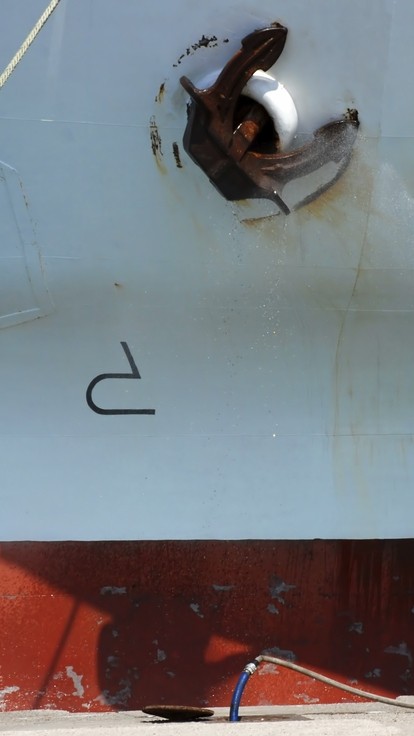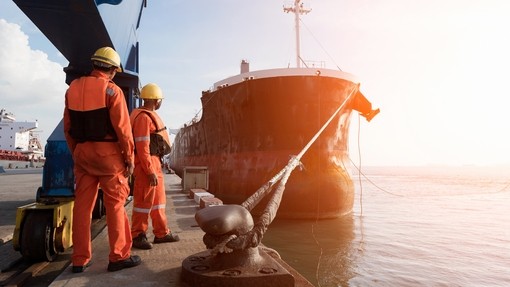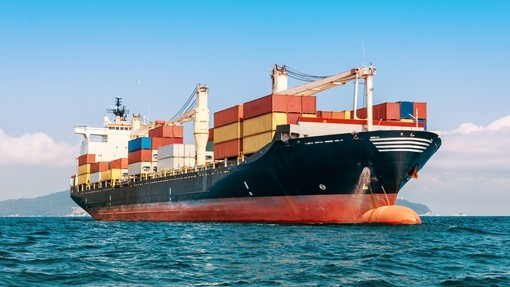Jiangsu Shagang Group Co Ltd -v- Loki Owning Company Ltd [2018] EWHC 330 (Comm)

Details
Mrs Justice Carr has recently considered an appeal under s.67 of the Arbitration Act 1996 challenging the award of an arbitral tribunal as to its substantive jurisdiction (the award). The award was made in favour of Loki Owning Company Ltd (the owners) as owners of the vessel “M/V POUNDA” (‘the “POUNDA”’), against Jiansgu Shagang Group Co Ltd (JSG) as alleged guarantors of the obligations of the head charterers, Shagang Shipping Co Ltd (Shagang). The appeal was allowed and as a result the owners were consequently denied a substantial award.
Factual background
The charterparty negotiations
In July 2008, the owners agreed terms for a 10 year charterparty with Shagang for the “M/V DAYTONA” (‘the “DAYTONA”’) at a hire rate of US$60,000 per day and a laycan in November/December 2008. The terms of the charter included a provision that there was to be a guarantee provided from JSG, with JSG countersigning the charterparty. At some point between 16 September and 31 October 2008 the charter was signed by Shagang (as charterer) and JSG (as guarantor) and, in the meantime, Shagang agreed to sub-charter the “DAYTONA” to Eastern Media International Corporation (EMIC) for US$75,000 per day (a profit for Shagang of US$15,000 per day).
Prior to delivery of the “DAYTONA”, in October 2008, the brokers, Howe Robinson & Co Ltd (‘HRS’) and Drybulk SA (Drybulk), negotiated for the substitution of the “DAYTONA” with the “POUNDA”, with a new laycan in April/May 2009. With the exception of the vessel details and laycan window, the “POUNDA” charter was ‘otherwise as per terms/conditions/exceptions/details including but not limited to period and hire of “M/V DAYTONA”/Shagang CP DD 08/07/08’ and the original charter for the “DAYTONA” was cancelled. The new charterparty was concluded on an amended NYPE 1946 form which stated that the charterparty was made between the owners and ‘“Shagang…to be guaranteed by [JSG]…(the guarantee)’ and included an LMAA arbitration clause. Significantly, the charterparty was never signed by Shagang or JSG.
The underlying claim
Under the terms of the charterparty Shagang were due to take delivery of the “POUNDA” ex the yard for a period of 118-122 months. The POUNDA was delivered into charter on 30 April 2009. However, during the course of the charter period Shagang repeatedly failed to pay hire on time (initially claiming that their sub-charterers, EMIC, were resisting delivery) and, after arbitration was commenced on numerous occasions in order to elicit payment, the charter was eventually repudiated by Shagang on 10 April 2015.
In the meantime, Shagang had entered into voluntary liquidation in February 2015. Consequently, a claim was brought against JSG as alleged guarantors for unpaid hire in the amount of US$10.7 million, damages from April 2015 to February 2018 in the sum of US$39.1 million, and future damages in the sum of US$18.2 million, together with interest and costs.
The awards
JSG indicated its jurisdictional objection at the outset of the arbitral proceedings and, although its application for jurisdiction to be determined by the court was opposed by the owners and rejected by the arbitrators, the matter was determined as a preliminary issue. The arbitrators held (as set out in the award) that there was a valid arbitration agreement between the owners and JSG.
Additionally, the arbitrators had delivered a separate award on quantum and liability shortly before the present court judgment. Liability was established in favour of the owners and quantified in the amount of US$68 million.
Legal issues
Mrs Justice Carr initially stressed a number of significant legal points. First, that the s.67 challenge was to proceed by way of a re-hearing rather than a review, and therefore each party was entitled to adduce new evidence not put before the arbitrators; second, that JSG was entitled to a full judicial determination on the evidence without any preconception that the arbitrators reached the correct conclusion; and third, that the burden of proof was on the owners to establish the existence of an agreement to arbitrate (by proving the guarantee was authorised).
The judge then went on to outline the relevant question to be determined: did JSG give express authority to Shagang to enter into the guarantee on its behalf? In the circumstances, the issue was ‘one of pure fact’ and revolved around whether or not a specific conversation took place between the relevant individuals at JSG and Shagang in November 2008.
In the preliminary issue hearing before the arbitrators, JSG had relied solely upon the oral evidence of Mr Shen Wen Ming (SWM) who had at all material times been vice president of JSG and also a director of Shagang. This evidence was given via video link from China with the aid of an interpreter and, together with a significant lack of disclosure, formed the basis for a number of adverse inferences to be made by the arbitrators.
However, in the current High Court proceedings, JSG were able to rely upon substantial additional disclosure (as provided by Shagang’s liquidators) together with a number of additional witnesses. These included Shagang’s chartering manager at the relevant time and also Shagang’s managing director who, together with SWM, were able to attest to the established procedure for JSG giving a guarantee, the prevalence of business being conducted orally between Shagang and JSG (not being uncommon in China), and the impetus of independence behind Shagang’s creation as a company.
Mrs Justice Carr held that there was an established procedure in place for the obtaining of JSG’s authority to guarantee Shagang’s obligations. This involved Mr Shen Wen Fu (SWF), the managing director of Shagang, approaching SWM and requesting the same after the key terms of a charter had been negotiated. On the basis of evidence given by SWM and Shagang’s chartering manager, Mrs Justice Carr held that this was ‘well-known to those within Shagang’s chartering department.’ In the present case, ‘the question of authority for a replacement guarantee was…overlooked’ and ‘was not on anyone’s radar’. In short, no-one at Shagang had approached JSG for a guarantee, nor had the owners raised the issue. Mrs Justice Carr concluded that the owners had not established on a balance of probabilities that JSG, through SWM, had authorised the guarantee and consequently the challenge to the award was allowed.
Case comment
Whilst this case is not entirely unique – as Mrs Justice Carr herself emphasised, ‘there have been several claims arising out of guarantors’ refusals to honour charterparty guarantees on the basis of…a lack of authority in the wake of the market collapse in 2008’ – it does help illustrate the nuances of doing business in different jurisdictions. The existence of a guarantee is particularly important when dealing with ‘paper companies’ and SPVs and parties should ensure that all requisite obligations are complied with. Whilst it is not uncommon for charterparties to go unsigned, in the present situation the owners should have ensured that they obtained JSG’s counter-signature as required by the charterparty.
This article originally appeared in the May 2018 edition of shipping case digest. Other articles include:
Seatrade Group N.V -v- Hakan Agro D.M.C.C The “ACONCAGUA BAY” [2018] EWHC 654 (Comm)
Exportadora de Sal S.A de C.V -v- Corretaje Maritimo Sud-America no Inc. [2018] EWHC 224 (Comm)






